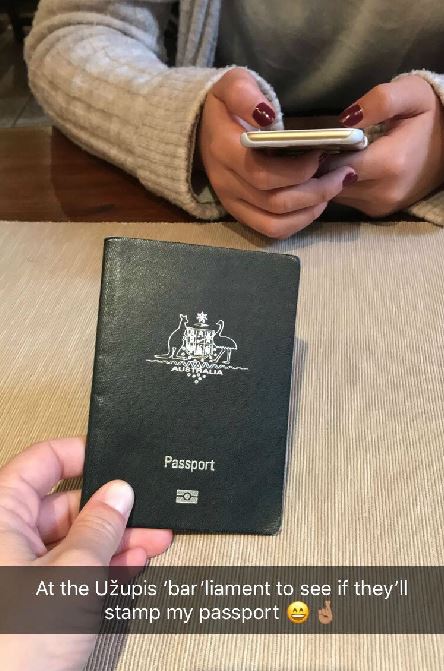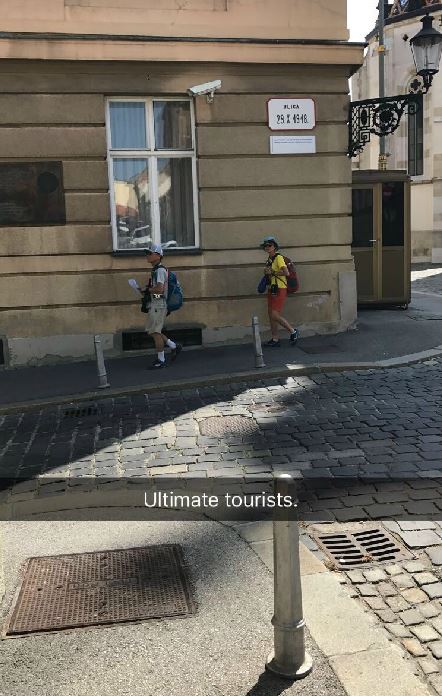The unsecure security line
This one is probably one of the scarier ones on the list, and the heist goes a little bit like this. You’ll be standing – potentially shoeless depending on your airport -in the security line, with all your possessions in one of those small plastic trays ready to slide on into the x-ray machine. On top will be sitting your passport, as it was the last thing in your hand and you want to keep your eye on it.
In front of you will be a seemingly harmless woman who turns around and starts to ask you questions, tries to strike up a conversation, or sometimes will just cause a scene. Behind you will be her swift partner in crime who will slide in and lift your passport from the top of the tray right before it goes into the x-ray machine. When the questions/conversation/scene is finished and you’ve made it through security you’ll notice your passport is missing, at which point your new friend and her swiping mate will be long gone.
Can be common in: the USA.
How to Avoid It
Keep your passport in your hand right up until the very last second before you go through the metal detector. Some airports will even let you carry it through. Keep your wits about you when your valuables are separated from you and don’t let yourself get distracted, even if the people around you seem trustworthy.

A blessing (scam) in disguise
If any travel scams are going to shatter your trust in humanity, this one is it. This one can be common in Asia around sacred sites and temples, with locals dressed as Buddhist monks welcoming you by placing bracelets on your wrists and necklaces around your neck, muttering under their breath in the local language, ‘blessing’ you. After the short yet sweet ceremony is complete, the monks will put out their hands for you to compensate them for their holy words and trinkets. They’re well practised in needling the cash out of you. After all, how can you say no to a monk?
Can be common in: Asia and Southeast Asia.
How to Avoid It
As soon as you see the monks approaching you with necklaces and bracelets simply shake your head and keep moving. If they do manage to corner you long enough to place the items on you, just take them off yourself, firmly tell them no and keep walking toward your destination. If there are any cultural practices required to enter your chosen site there will usually be staff on hand to advise you.
The wifi whisperer
You’ve just hit a new country, you’re a long way from home and your phone is completely off the grid. With no mobile data roaming plan, you are completely disconnected from the internet, until you happen across a free, unlocked wifi network with speeds fast enough to Instagram post every photo you’ve taken from stepping off the plane to the current moment. However, the minute you sign in, the hackers who set up the fake wifi connection could access your phone or computer, passwords, private information and online accounts.
Can be common in: Eastern Europe, particularly Poland, Lithuania and in the USA.
How to Avoid It
This particular scam is often targeted towards hotel guests or other areas where wifi use is common, such as museums and cafes. Approach staff at each establishment to find out the official wifi connection and password and you should be safe.
Otherwise, set up a VPN (Virtual Private Network) on your phone or computer to protect your data. While travelling I used ZenMate and had no problems, but there are a few different options for VPN providers out there if you want to shop around.
https://www.instagram.com/p/BTpRyT4jqcT/?taken-by=maddieclarey
Making a local connection
You’ve just landed in a new foreign land, made it successfully to your chosen accommodation, had a rest and decide to hit the streets and explore the city. After walking around for just a short while you get approached by a curious local, eager to make a new foreign friend. You have a bit of a chat and your new friend tells you the best places in the city to see. He’ll even help you get there, describing the places and their history in remarkable detail.
You follow him, listening to his impressive knowledge, wondering how you got so lucky as to make such a knowledgeable friend able to give you the inside tips to the city all for free. Right up until he reaches the end of his impromptu tour and starts asking you for money. You never agreed to this, and you’re inclined to say no, until his five much larger friends suddenly emerge from the shadows and you feel you don’t really have a choice.
Can be common in: Asia and Southeast Asia, particularly Myanmar and Thailand.
How to Avoid It
It seems obvious to say, but be wary of strangers you meet in the street. They’re almost never what they want you to believe they are. If you do get approached by someone in this manner, just tell them you’ve already made plans or you’re not interested. They have no time for someone who is not willing to listen to them and they’ll move on pretty easily.
The ‘I just need to see your passport’
Do not pass go, do not pay $200. Common in Eastern Europe, travellers who appear obviously foreign (ie. carrying large backpacks, poring over maps etc.) can be approached by men in police uniform who ask to see their passports or European ID cards. After looking over your documentation for a few moments the ‘police officer’ will discover something amiss and threaten to have you thrown either in jail or out of the country. After a tense little conversation, the officer will offer to overlook the issue – for a small fee.
Can be common in: Eastern Europe, particularly Romania, Hungary and Bulgaria.
How to Avoid It
If such a situation does happen to you, don’t panic and lose your head. Just calmly ask to see the police officer’s ID, which he likely won’t be able to provide, and that will usually indicate to him you know what’s going on.
Genuine passport checks can occur and you are quite within your rights to ask for the officer’s ID, which any official police officer will be able to provide. Alternatively, you can ask to accompany him to the nearest police station to sort it all out, citing a lack of available cash, and have it sorted out legally. Naturally, your friend the ‘con man’ will be less than thrilled about heading to the nearest station and should let you go on your way.

 About Maddison Clarey
About Maddison Clarey
Maddie is a fresh journalism and anthropology graduate with a habit of not staying in one place for too long. You can read all about her attempt to understand the world and the people she met on the ultimate ethnographic expedition around the globe at The World Ethnography.





Share this article